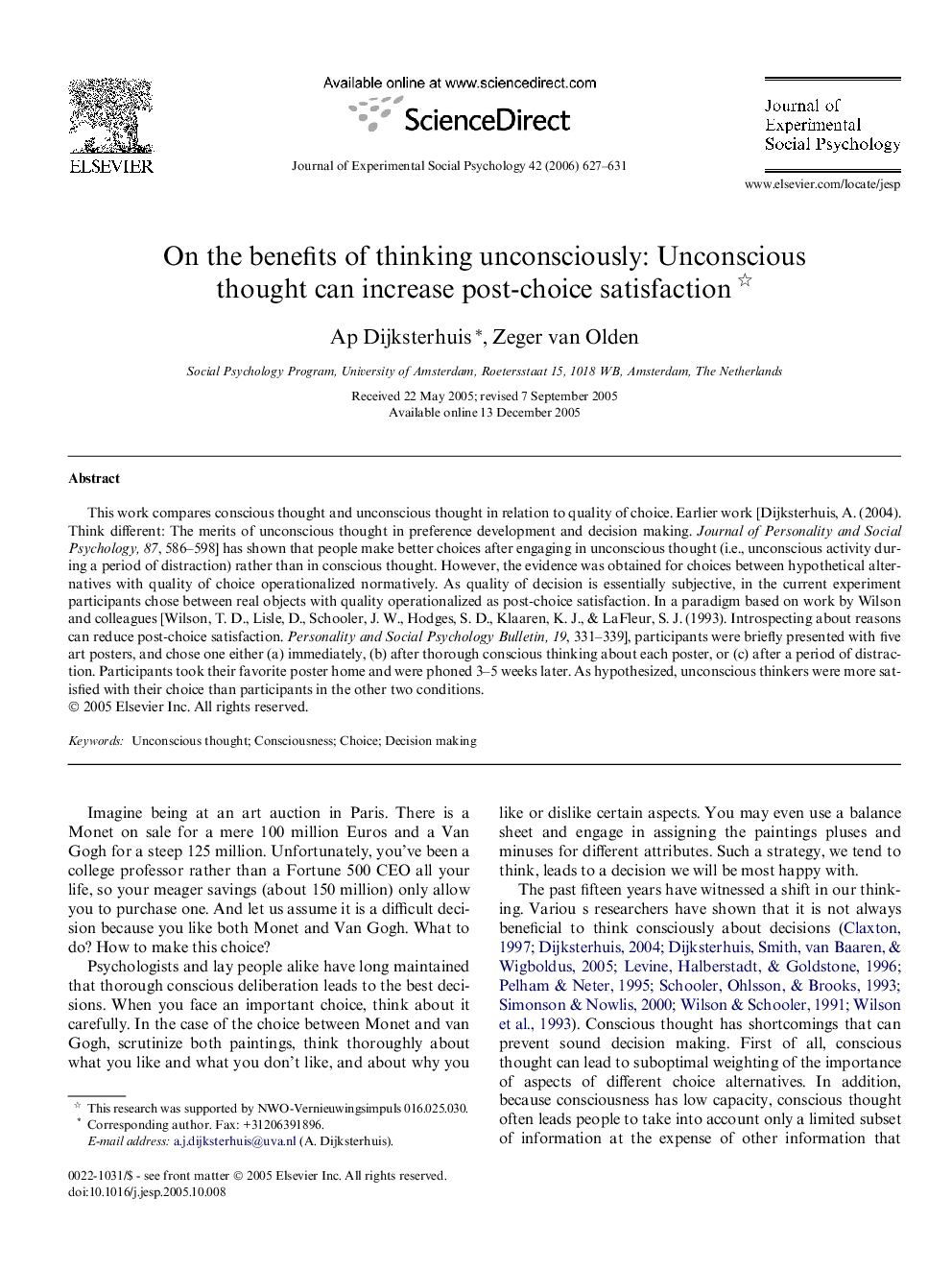| Article ID | Journal | Published Year | Pages | File Type |
|---|---|---|---|---|
| 948692 | Journal of Experimental Social Psychology | 2006 | 5 Pages |
This work compares conscious thought and unconscious thought in relation to quality of choice. Earlier work [Dijksterhuis, A. (2004). Think different: The merits of unconscious thought in preference development and decision making. Journal of Personality and Social Psychology, 87, 586–598] has shown that people make better choices after engaging in unconscious thought (i.e., unconscious activity during a period of distraction) rather than in conscious thought. However, the evidence was obtained for choices between hypothetical alternatives with quality of choice operationalized normatively. As quality of decision is essentially subjective, in the current experiment participants chose between real objects with quality operationalized as post-choice satisfaction. In a paradigm based on work by Wilson and colleagues [Wilson, T. D., Lisle, D., Schooler, J. W., Hodges, S. D., Klaaren, K. J., & LaFleur, S. J. (1993). Introspecting about reasons can reduce post-choice satisfaction. Personality and Social Psychology Bulletin, 19, 331–339], participants were briefly presented with five art posters, and chose one either (a) immediately, (b) after thorough conscious thinking about each poster, or (c) after a period of distraction. Participants took their favorite poster home and were phoned 3–5 weeks later. As hypothesized, unconscious thinkers were more satisfied with their choice than participants in the other two conditions.
